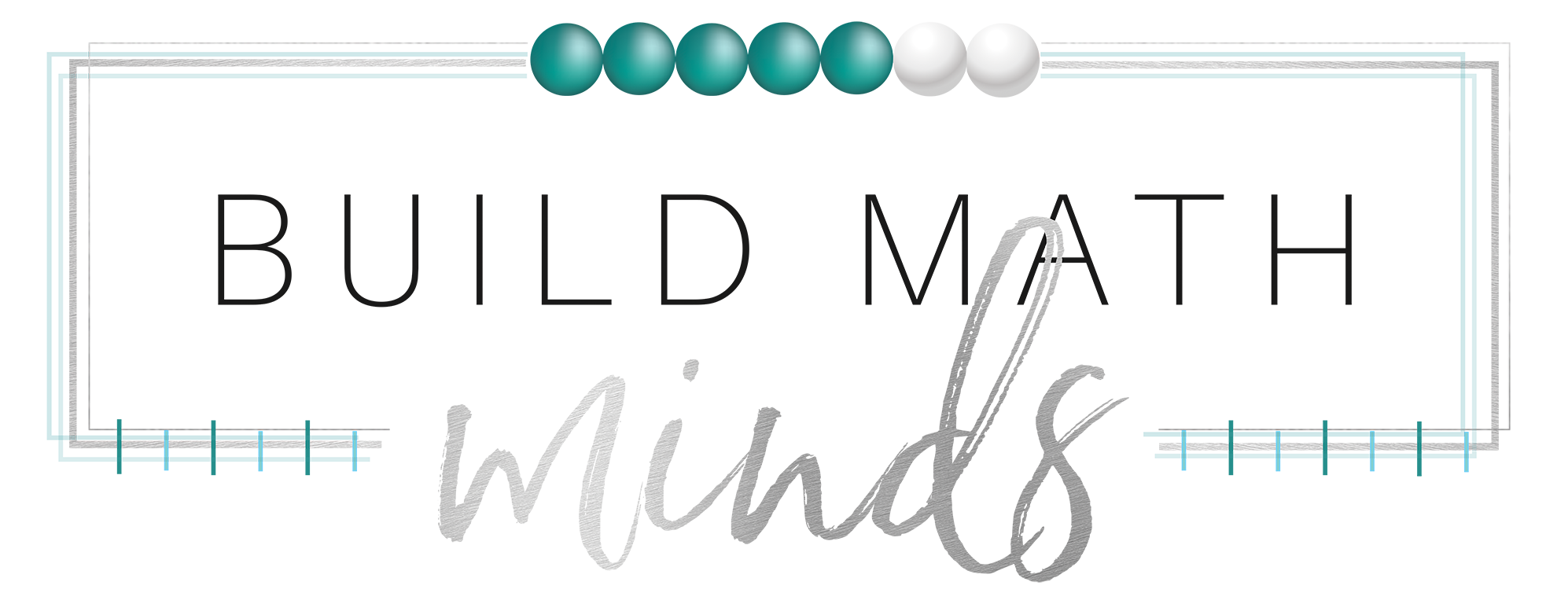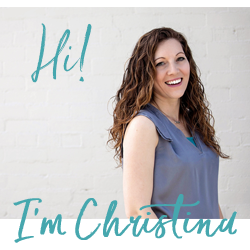***Links to external websites may become broken over time. ***
The other day my mom asked me if I saw a thing she pinned on Pinterest that encouraged people to give their children 3 things for Christmas:
1) Something they want.
2) Something they need.
3) Something to read.
I like the simplicity of this idea, but my initial response was, “What about something mathematical?” It really does bother me how much emphasis gets put on reading skills for kids versus developing math sense. Don’t get me wrong, reading is important, but one large research study suggests that early reading might not be as important as early math. Plus, math isn’t like reading. If you struggle to learn to read in kindergarten teachers and parents will work with you and keep working with you (and it might take until 3rd grade or later) until you become “a reader.” But there is no point where we say some child is “a mathematician.” Because once they finally “get” a certain math concept there is a new math concept to “get.” For kiddos who struggle, it might take them until 3rd grade to finally get a certain concept (which started in Kindergarten), and now the deck is REALLY stacked against them because they are 3 years behind in math learning. Now I’m not saying we can’t help those children (WE CAN!!) but every year a child gets behind in mathematics just makes it harder and harder to catch them up. Math isn’t like reading, in that once you finally learn to read you are off and running. Kids need a great start to mathematics or else the snowball of struggle in mathematics just gets bigger and bigger with every passing year. All this to say that I want to encourage you to bring mathematics into children’s lives just like you bring reading into children’s lives. And what a great place to start than with the toys we buy for children!!! Toys are a fun way to bring in mathematics in a non-threatening way. Too many of us view mathematics as pencil and paper worksheets (that’s arithmetic, not mathematics). Mathematics is about thinking, planning, problem solving, and building!! So with Christmas fast approaching this is my Mathematical Christmas Buying Guide to help bring more mathematics into kiddo’s lives, do you have any favorite math toys or games to add to my list??
Toddlers
Blocks are a wonderful way to build spatial reasoning skills in toddlers. I like that the Block n Learn Toddler Learning Blocks are non-linking blocks which makes toddlers think about balancing the blocks. Plus they have numbers on them along with pictures that correspond to each numeral.
The 1 to 4 Number and Shape Sorter Smart Toy is a great first toy to help develop subitizing. Subitizing is the ability to tell how many in a set without counting. This helps kids see “3” as three things in a set not as just “1, 2, 3” individual items. This toy also builds spatial reasoning as the child tries to fit the shapes on the pegs correctly.
Give kids lots of practice counting with these fun 1 to 10 Counting Cans
Children’s books with a counting theme are a wonderful way to bring reading and mathematics together. With the addition of Baby #4 to our family, I was given the Sofie la girafe teething toy along with the Sophie la girafe Counting Book
(yes, this person knows me well!).
PreSchool
Legos and other building blocks are always a great way to introduce kids to spatial reasoning. Lego’s Duplo line has lots of wonderful sets, many designed towards girls with purple and pink colors and disney princesses in the sets, however my favorite set is the LEGO DUPLO Number Train. The kids not only get to build the train but also start putting numbers into a “number line.” My kids also love the magnetic building sets by Magformers
.
Educational Insights Design & Drill is a fun toy for boys or girls. Kids can recreate the designs that come with the kit or build their creativity by designing their own.
Gears! Gears! Gears!® says it all. This toy is a bunch of gears (along with the structural pieces). Kids can build and then see the action that gears create.
Memory games help kids pay attention to detail when finding matches. You can find all kids of variations of the game, but the two favorites in my house are the My Little Pony Memory Game and the Marvel Comics Memory Game
.
Chutes and Ladders is a fun game but it also builds early numeracy skills. Check out the study by Ramani & Siegler to read about its mathematical benefits for preschoolers. Chutes & Ladders is the only board game that has the actual numerals along the path which helps to improve children’s number sense.
Brown Bear, Brown Bear, What Do You See? is a great way to talk about patterns. The basis of mathematics is the pattern and predictability of numbers. Read this book as a way to help them identify a repeating pattern and use it to make predictions about what is coming next.
Early Elementary (Ages 5-7)
Legos are a wonderful toy for any age or gender (like the Lego Wolverine Chopper or Lego Friends Olivia’s Tree House). Not only can children explore their creative side, but when constructing from a kit, children develop excellent spatial reasoning because all the directions are pictures. Kids have to figure out which pieces to use and then how to turn them so that they fit the way it shows in the picture.
Another fun toy that helps kids build their spatial reasoning while constructing 3-D creations is the line from Superstructs. My personal favorite is the Superstructs Pinklets The Fairy Garden. I LOVE that this is dishwasher safe so I can clean them up easily.
Want a fun way to help your child who is struggling with their math facts? The Shut The Box Game has wooden levers with the numbers 1-12 (or 1-9 depends on the version you buy). Players roll two dice and can “shut,” or close, any combination of the levers that equals the sum of the numbers on the dice. For example if the sum on the dice is 9, a child could close the 4 and 5, 6 and 3, etc or they can use more than two levers (like 2, 3, and 4 to make the 9).
Ratukiis an amazing stocking stuffer. This wonderful, yet simple, card game builds so many number sense ideas for kids (not to mention fun for adults, too). The cards show each of the numbers 1-5 in various ways (numeral, word, tally marks, dice, and fingers), some of which help build subitizing. The way the game is played builds children’s understanding of one more/less.
One of the best strategy and spatial building games out there is Blokus. Players try to place as many of their tiles on the board, along the way trying to block their opponents and strategizing to determine when to play which pieces.
Klutz Book of Paper Airplaneshas easy to follow directions so that children can make the airplanes themselves instead of always needing an adult. Paper folding (and following the visuals in the book) help build their spatial reasoning.
Upper Elementary (Ages 8-11)
The GoldieBlox company has a noble theme: Make more girls interested in engineering. Their toys appeal to girls, yet are focused on getting them to build and develop basic engineering ideas. I even love their t-shirt that lets girls know that they are “more than just a princess.”
Any type of Rocket Kit gets kids visualizing as they build but also investigating math and science together. Plus who doesn’t like to make something and see it shoot up to the sky???
K’NEX sets are a great way to get older kids interested in building, but the K’NEX Education Sets
help them also investigate science and architecture ideas.
Monopolyis a classic, so how can you go wrong?? It is a great way for kids to practice counting with money plus building some business skills as they build up their real estate.
Looking for a fun family game that everyone can play AND have a good time? Wits & Wagers Family Edition is a trivia game where every family member uses their Wits to answer the question. All the answers are laid out in least to greatest order and then everyone Wagers on which answer they think is correct.
Guinness World Records 2014 helps kids see the importance of numbers in our real-life by engaging them in stories that appeal to them (in sometimes gross ways!).
Any age
Puzzles – traditional puzzles are great spatial builders but so are things like tangram and pattern block puzzles.
Remote Control toys – figuring out how to tell the toy to move builds great problem solving and spatial reasoning for kiddos.
Games played with dice, dominoes, or cards – Games like Yahtzee, dominoes, rummy, or cribbage have too much mathematics built in to list here. (huh, gives me an idea for another post!!)
Math Themed Children’s books – Any time we can combine math and reading in order to help build kids’ abilities in those two critical areas is a great thing.
In case you haven’t noticed an underlying theme…any toy that helps build children’s spatial reasoning (blocks/building sets) will help build their mathematical skills. Spatial reasoning is one of the biggest predictors of future success in mathematics; thus toys that build their spatial reasoning help to build their Mathematical Minds!




























 Welcome! I’m a Recovering Traditionalist elementary teacher and now, I help teachers and children learn to love math. Explore how I can help provide you PD at your fingertips! BuildMathMinds.com
Welcome! I’m a Recovering Traditionalist elementary teacher and now, I help teachers and children learn to love math. Explore how I can help provide you PD at your fingertips! BuildMathMinds.com